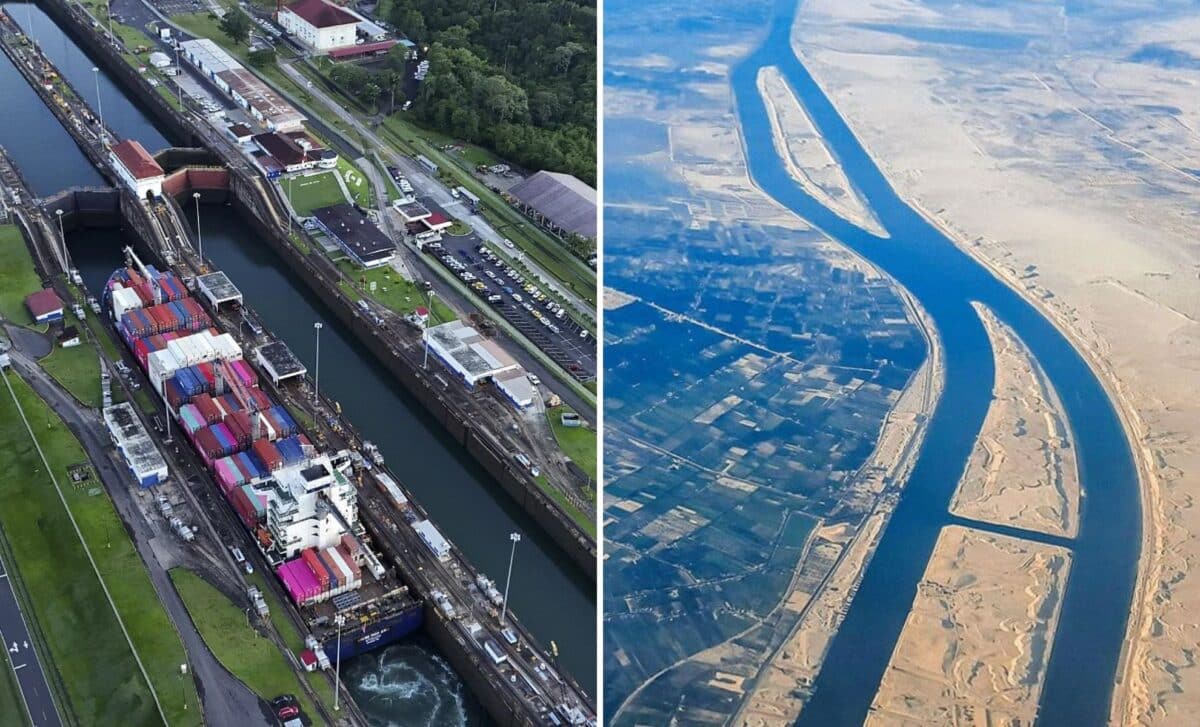US President Donald Trump has made a renewed demand for free passage of American military and commercial vessels through the strategically significant Panama and Suez canals.
His statement, made on April 26 via a post on Truth Social, has sparked a debate about global maritime policy and the future of these crucial trade routes.
The Panama and Suez canals are two of the world’s most important arteries for international shipping. The Panama Canal, completed by the United States in the early 20th century, serves as a vital shortcut between the Atlantic and Pacific oceans.
Meanwhile, the Suez Canal, connecting the Mediterranean Sea to the Red Sea, facilitates around 10% of global trade. Both routes are essential not just for commercial interests, but also for military movements, particularly for the US Navy.
Trump’s Stance on the Panama Canal
Trump’s comments on the Panama Canal have reignited a long-standing discussion about its control. The US oversaw the construction of the canal but handed control to Panama in 1999, a move that Trump has repeatedly criticized.
According to several sources, Trump has referred to this transfer as a “big mistake” and has suggested that the US should regain control, potentially using economic or military leverage.
His recent comments also touched on the US’s strategic interests in the region, particularly in the face of growing Chinese influence in the area.
The US has long been concerned about Chinese investments in critical infrastructure, including port operations linked to the Panama Canal.
Panama’s government has rejected any suggestion of US control, reaffirming that the Panama Canal is an independent entity managed by the Panama Canal Authority (ACP).
The Suez Canal and Global Trade Security
The Suez Canal holds similar strategic importance but for different reasons. Trump’s comments also included the Suez Canal, which has been a focal point for global trade since its opening in 1869.
The Suez facilitates the movement of goods between Europe, Asia, and Africa, and while it has always been vital, its importance has increased in recent years.
The ongoing threat of attacks on shipping vessels by Houthi rebels in the Red Sea has raised security concerns for both the canal’s operators and international trade.
The US Navy has taken an active role in addressing this threat, with frequent strikes against Houthi positions, according to reports. Trump’s call for free transit through the Suez Canal is likely linked to these concerns, as well as the need to protect vital maritime routes from regional instability.
Both the Panama and Suez canals are fundamental to global trade, and Trump’s push for free passage through these waterways highlights the complex interplay between military strategy, commercial interests, and international diplomacy.









